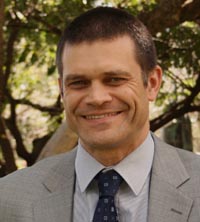 Charles Sturt University (CSU) Vice-Chancellor, Professor Andrew Vann, has raised concerns about the reliability of data suggesting that 90 per cent of teacher education graduates in NSW and Queensland failed to find jobs after graduation published on 25 March in The Australian, ‘Millions Wasted on Teacher Training’.
Charles Sturt University (CSU) Vice-Chancellor, Professor Andrew Vann, has raised concerns about the reliability of data suggesting that 90 per cent of teacher education graduates in NSW and Queensland failed to find jobs after graduation published on 25 March in The Australian, ‘Millions Wasted on Teacher Training’. Professor Vann noted that the latest independent national survey in December 2012 from the Graduate Careers Council of Australia (GCCA) found three in four teacher education graduates are in full-time employment four months after graduation, and that a further 20 per cent are in part time employment.
“The idea that 90 per cent of teachers in NSW and Queensland don’t find work after graduating simply doesn’t pass the common sense test,” Professor Vann said.
“I don’t think anyone is going to believe it, and the data shows that it is simply inaccurate,” said Professor Vann.
Professor Vann said the GCCA figures reinforce Charles Sturt University’s own data showing that 96 per cent of CSU teacher education graduates are in full-time or part-time work four months after graduation.
“We are really concerned about how data is being used and that it could unintentionally mislead the public about what is going on,” he said.
“For example, it has been claimed that NSW currently has 40 000 teacher education graduates on a waiting list. But what is not disclosed is that only a very small number of these are actually available for work.
“It is well known that prospective teachers put their names on the list well ahead of their plans to enter the workforce or leave their names on the list while raising families, as they plan to re-enter the workforce down the track.
“The way the data has been presented also suggests that all teacher education graduates move into employment in schools, which we also know is not accurate,” Professor Vann said.
“A teaching qualification is highly regarded and sought after in a lot of professional areas. For example, teaching graduates are working in charities providing homework assistance to disadvantaged children, in social work organisations providing support to older Australians, and in the private sector in training and development departments.”
The Vice-Chancellor acknowledged that there appears to be some imbalance in the supply of primary school teacher graduates.
“Universities are fully aware of this and have been responding to this challenge as we respond to changing workforce needs on a routine basis across all our professional disciplines.
“For example, at Charles Sturt University we have embedded primary teaching into our secondary teaching program and into our early childhood program where we have pressing needs in rural and regional communities.
“This is absolutely critical in rural and regional areas where we need to make sure that our graduates have the skills to work in multiple sectors as the needs of their town change, or to allow them to pursue career goals without leaving rural Australia.”
Professor Vann expressed concern that the tone of the current debate may discourage some students from pursuing further studies.
“We don’t say that a law degree is waste of time because 60 per cent of law graduates go on to highly successful careers as business people, policy makers, financial sector workers and even politicians.
“The value of further education in social and economic terms has been proven over and over again, and the skills students acquire in a degree prepare them for multiple career paths over their lifetime.
“We need to challenge this idea that doing teacher education is a waste of time unless graduates are working inside a school,” Professor Vann said.





Social
Explore the world of social